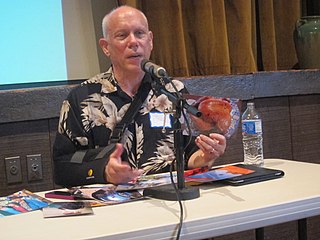A Quote by Kevin Lynch
AIR grew out of our early thinking about rich Internet applications around 2001. We started to see web developers pushing the boundaries of what could be done inside the browser and taking advantage of Flash in ways that we hadn't expected.
Related Quotes
What I saw quite clearly in the '80s, before the internet, was that the whole world was shifting toward digital formats, and that didn't matter whether it's movies or writing or whatever. It was something that was coming. And with the invention of the World Wide Web in the early '90s, when we were teaching our first courses, or the arrival of the internet by way of the browser, which opened up the internet to everybody - soon it was just revolutionary.
When I started eBay, it was a hobby, an experiment to see if people could use the Internet to be empowered through access to an efficient market. I actually wasn't thinking about it in terms of a social impact. It was really about helping people connect around a sphere of interest so they could do business.
Using the HTTP protocol, computer scientists around the world began making the Internet easier to navigate by inventing point-and-click browsers. One browser in particular, called Mosaic, created in 1993 at the University of Illinois, would help popularize the Web, and therefore the Net, as no software tool had yet done.
For the first time we're allowing developers who don't work at Facebook to develop applications just as if they were. That's a big deal because it means that all developers have a new way of doing business if they choose to take advantage of it. There are whole companies that are forming whose only product is a Facebook Platform application.

































